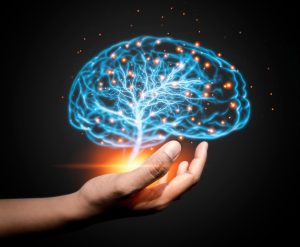Recovering from a traumatic brain injury (TBI) requires prompt action and a well-structured plan. The initial moments and days following a brain injury are critical to the recovery trajectory. Implementing immediate steps can significantly influence the healing process, helping to reduce lasting complications and support neurological repair.
The first and most crucial step in TBI recovery is seeking medical attention. Even mild head injuries require proper evaluation to rule out internal bleeding, swelling, or concussion-related complications. A thorough medical assessment, including imaging tests like CT scans or MRIs, helps identify the severity of the injury and guides further treatment plans.
Once the initial medical evaluation is complete, rest becomes paramount. The brain requires time to recover, and excessive mental or physical exertion can delay healing. During the first few days post-injury, individuals should avoid screen time, loud noises, and intense activities. Sleep is critical, as it facilitates cellular repair, reduces inflammation, and strengthens neural connections.
Nutrition plays a significant role in immediate brain recovery. Consuming anti-inflammatory foods, staying hydrated, and avoiding processed or high-sugar foods help support cognitive function. Omega-3 fatty acids in salmon, walnuts, and flaxseeds promote neural regeneration and reduce oxidative stress. Hydration is equally important, as dehydration can exacerbate headaches and cognitive fog.
Brain stimulation techniques should be introduced gradually. Simple activities like listening to calming music, engaging in light reading, or performing guided breathing exercises help maintain cognitive engagement without overwhelming the nervous system. Sensory-based therapies, including gentle vestibular exercises and eye-tracking movements, can also aid in recalibrating the brain’s processing functions.
Physical rehabilitation should be carefully tailored to the individual’s condition. Chiropractic adjustments, physiotherapy, and gentle movement exercises support musculoskeletal alignment and prevent secondary complications. Sensory therapy, which involves exposure to controlled stimuli like light, sound, and vibrations, helps rewire the brain’s neural pathways, improving balance and coordination.
Immediate brain injury recovery also benefits from emotional support. Depression, anxiety, and frustration are common in TBI patients, and addressing mental well-being is essential. Mindfulness practices, therapy, and a strong support network help individuals navigate the emotional challenges associated with brain trauma.
By following these immediate steps, Dr John. W Jung guides the individuals on recovering from TBI can enhance their healing potential. Early intervention through rest, proper nutrition, gradual stimulation, and emotional care sets the foundation for long-term recovery and improved quality of life.




